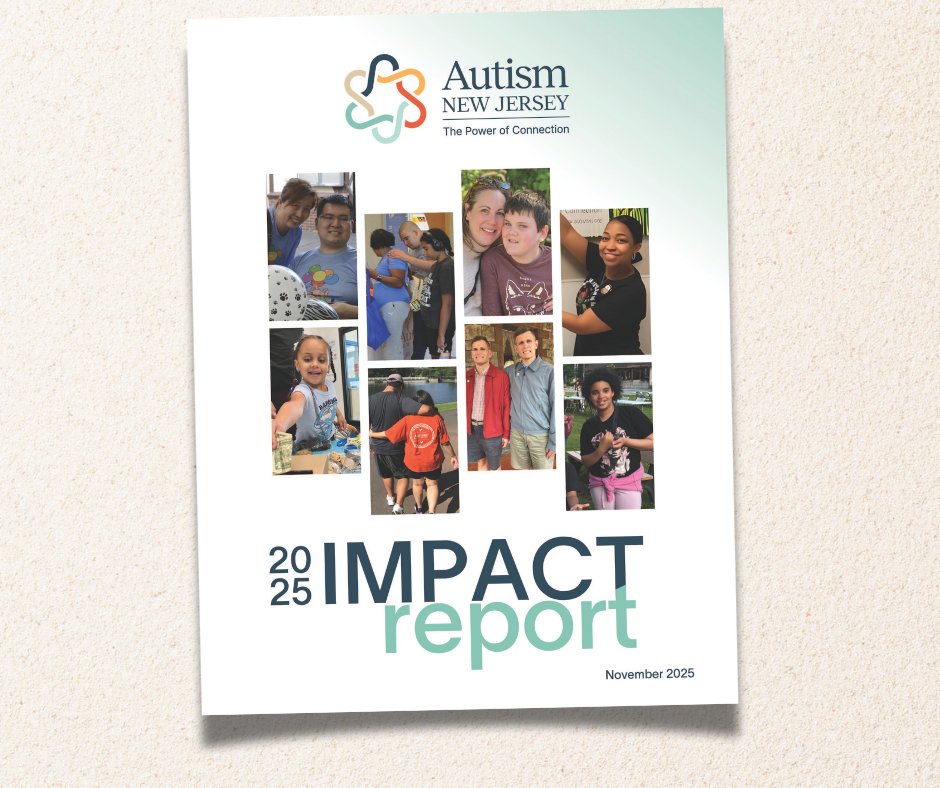On May 6, 2024, the New Jersey Division of Consumer Affairs (DCA) issued the finalized regulations (New Jersey Administrative Code 13:42B), and the application portal will open soon. The following is a brief section-by-section overview of these regulations.
![]() DISCLAIMER: Autism New Jersey is providing this article for informational purposes only. The materials presented do not constitute legal advice. All applicants are encouraged to pose questions or seek information directly from the New Jersey State Board of Applied Behavior Analyst Examiners or consult legal counsel.
DISCLAIMER: Autism New Jersey is providing this article for informational purposes only. The materials presented do not constitute legal advice. All applicants are encouraged to pose questions or seek information directly from the New Jersey State Board of Applied Behavior Analyst Examiners or consult legal counsel.
Table of Contents
Why Are Regulations Important?
The practice of applied behavior analysis in the State of New Jersey is determined to affect the public safety and welfare, and to be subject to regulation and control in the public interest in order to protect the public by setting standards of qualification, education, training, and experience for those persons seeking to practice and be licensed as applied behavior analysts and assistant applied behavior analysts.
Subchapter 1. General Provisions
13:42B-1.1 – Scope of Practice
This subsection lists the purpose of this chapter and persons who are exempt from licensure requirements.
The purpose of this chapter is to implement the provisions at P.L. 2019, c. 337 (N.J.S.A. 45:8B-91 et seq.), which created the Board of Applied Behavior Analyst Examiners.
This chapter does not apply to any of the following persons, unless they represent themselves as licensed applied behavior analysts or licensed assistant applied behavior analysts or by any title set forth at N.J.A.C. 13:42B-4.1:
- Persons licensed to practice a profession in New Jersey, including physicians, psychologists, psychoanalysts, marriage and family therapists, social workers, professional or rehabilitation counselors, or speech-language pathologists or audiologists, provided they are providing services within their professional scope of practice
- Family members
- Paraprofessional technicians under the supervision of an LBA or LaBA
- Behavior analysts who practice with nonhumans
- Professionals who provide general applied behavior analysis services to organizations, if those services are for the benefit of the organizations and do not involve direct services to individuals
- College students in an applied behavior analysis program who are supervised by an LBA
- Unlicensed persons pursuing experience in applied behavior analysis consistent with the experience requirements of the board, if the experience is supervised in accordance with the requirements of the board
- People who teach applied behavior analysis or conduct behavior analytic research
- BCBAs or LBAs from another state who work in New Jersey for no more that 10 consecutive business days, or not more than 15 intermittent business days, in any 90-day period
- Employees of a school district, charter school, education services commission, or private school in performance of regular employment duties
- Persons who are working under the authority or under contract with the Division of Developmental Disabilities, in the Department of Human Services until May 6, 2027
- Persons who are working under the authority of and under contract with the New Jersey Early Intervention Program, in the Department of Health until May 6, 2029
13:42B-1.2 – Definitions
This subsection:
- Provides a list of words and terms with their respective meanings, for reference as someone reads through the regulations
Subchapter 2. Application for Licensure
13:42B-2.1 & 13:42B-2.2 – Application
This subsection:
- Describes the application process to become a licensed behavior analyst (LBA) or licensed assistant behavior analyst (LaBA)
- Complete an application including proof of education and current BACB certification
- Complete a jurisprudence orientation
- Pay the application fee
- Supervisor’s information – for LaBAs only
13:42B-2.3 – Reciprocity
This subsection:
- Lists the requirements for behavior analysts currently practicing in other states to become licensed
- Explains what would justify a revocation of someone’s license
13:42B-2.4 – Incomplete Application
This subsection:
- Explains the reasons that an application would be considered abandoned
- If this occurs, the Board will close the application and dispose of any documents received
- States that an applicant may reapply at any time
Subchapter 3. Renewal of Licensure
13:42B-3.1 – Renewal
This subsection:
- Describes the renewal process
- The Board will provide a notice of renewal to a licensee at least 60 days prior to the expiration date
- The licensee will need to complete a renewal application, provide proof of current certification, and pay the renewal fee
- The renewal application is required within 30 days of the expiration date, or the license will be suspended
13:42B-3.2 & 13:42B-3.3 – Reactivation / Reinstatement
This subsection:
- Explains how a licensee whose license is inactive or has had their license suspended can apply for reactivation/reinstatement
- This requires the licensee to complete the appropriate application and provide a certification of employment history, proof of current certification, and all required fees
- If the Board determines that there may be practice deficiencies, they may require additional steps be taken to address these prior to issuing a license
Subchapter 4. Professional Practice
13:42B-4.1 – Prohibitions on Unlicensed Persons & Designations for Licensed Persons
This subsection:
- Reinforces that only those who are licensed as an applied behavior analyst or assistant applied behavior analyst or are in an exempt position may practice applied behavior analysis
- Describes the job titles that may be used by licensees
- A licensed behavior analyst may use:
- Licensed behavior analyst;
- Licensed applied behavior analyst; and
- LBA
- A licensed assistant applied behavior analyst may use:
- Licensed assistant behavior analyst;
- Licensed assistant applied behavior analyst; and
- LaBA
- A licensed behavior analyst may use:
13:42B-4.2 – Sexual Misconduct
This subsection:
- Identifies specific circumstances that would be considered misconduct
- Provides terms and definitions related to sexual misconduct
13:42B-4.3 – Change of Address, Name, or Supervisor
This subsection:
- States that it is the responsibility of the licensee to notify the Board of any change of address, legal name, or supervisor within 30 days of the change
- For a name change, a copy of the marriage license or court order will be required as well
13:42B-4.4 – Name Tags & Signage
This subsection:
- States that a licensee is required to wear a name tag or an embroidered shirt when providing in-person care
- Includes the licensee’s name, the licensure title and professional degree attained
- In a hospital settings, a photo will also be required unless the hospital determines this not to be necessary
- These requirements do not apply to in-patient hospital or emergency department client care, or if the licensee is providing telehealth/telemedicine services
- Explains that a licensee shall post signage at any office where they provide services
- The sign should be in at least 12-point font and posted in a clear and conspicuous manner
- The required information includes the licensee’s name, the licensure title and professional degree attained
- These requirements do not apply to in-patient hospital or emergency department client care, or if the licensee is providing telehealth/telemedicine services
13:42B-4.5 – Reporting of Misconduct
This subsection:
- Explains that it is the responsibility of the licensee to report any incidents of misconduct
- If a licensee is aware of any misconduct by another licensee, it is that licensee’s responsibility to report this to the Division of Consumer Affairs, the Health Care Professional Information Clearing House Coordinator, and the Board
- Provides specific scenarios that would require immediate notice to the Board by a licensee
13:42B-4.6 – Informed Consent
- States that informed consent needs to be obtained prior to providing services
- This needs to be documented and maintained in the client’s record
Subchapter 5. Supervision and Delegation
13:42B-5.1 – Licensed Assistant Applied Behavior Analyst Supervision
This subsection:
- Explains that a licensed assistant behavior analyst needs to be supervised by a licensed behavior analyst
- The Supervisor needs to have completed the eight-hour BACB Supervisor Training Curriculum, and the meetings are to be face-to-face
- For the first year, supervision is to be for at least 5% of practice hours weekly or one hour every two weeks (whichever is more)
- Thereafter, supervision needs to be for at least 2% of practice hours or one hour every month (whichever is more)
- This supervision can be more frequent if it is determined to be necessary
13:42B-5.2 – Delegation to a Technician
This subsection:
- Provides parameters on what may and may not be delegated to a paraprofessional technician, and what the responsibilities of the licensee are
- The licensee may delegate the performance of interventions in a treatment plan
- The licensee may not delegate the assessment of a client, development of a treatment plan or development of interventions
- Ultimately, the care of the client is the responsibility of the licensee, even if delegated
- There are specific considerations listed in this section for a licensee to address when delegating to a paraprofessional technician, and these conditions differ in a licensed vs. an unlicensed setting
13:42B-5.3 – Student Supervision
This subsection:
- States that supervision of a student completing coursework must comply with the BACB standards
Subchapter 6. Business Practices
13:42B-6.1 – Advertising
This subsection:
- Explains that a licensee may provide information through electronic or print media
- There are several examples listed in this section where the solicitation might be considered professional misconduct
13:42B-6.2 – Advertising Free or Discounted Services
This subsection:
- Provides guidance if a licensee is advertising a discounted fee, specific disclosures are listed to be included
13:42B-6.3 – Testimonials
This subsection:
- Provides clear guidelines if a licensee wishes to include testimonials in their advertising
13:42B-6.4 – Minimum Content
This subsection:
- States that advertisements in a classified directory, business cards and on professional stationery need to include:
- Name and license number of at least one licensee
- Licensure title, education level of the licensee
- Address and phone number of the practice
13:42B-6.5 – Recordkeeping
This subsection:
- Provides the requirements for recordkeeping by a licensee
- A licensee is required to make entries into a client record for services rendered
- These are to be maintained for seven years from the last date entered
- Provides the minimum information that a record is to include, how to make corrections/additions and a stipulation for minors requiring the record be kept for seven years or until the client is 25 (whichever is longer)
- States that the records should be provided to the Board upon request
13:42B-6.6 – Providing Records
This subsection:
- States that licensees are required to provide a client record to the client or authorized representative within 30 days of the request
- A fee may be charged within identified limits
- A typed transcript is to be provided if the actual record is illegible
- An English translation is to be provided if the record is in another language
- States that safeguards are to be taken to ensure privacy if there is a release to a specified vendor or entity
- Identifies instances where a licensee is allowed to withhold a client record
- The licensee is required to provide rationale to the client if they do so
13:42B-6.7 – Computer Usage
This subsection:
- States that if using a computer to prepare a client record, there are specific requirements
- States that a hard copy of the record is to be generated upon request, and this must be paginated as “page # of total pages”
Subchapter 7. Telemedicine and Telehealth
13:42B-7.1 – Scope of Practice
This subsection:
- States the conditions under which licensees may provide telemedicine and telehealth
13:42B-7.2 – Definitions
This subsection:
- Explains terms that apply to telemedicine and telehealth services
13:42B-7.3 – Standards
This subsection:
- Describes the requirements to provide telemedicine and telehealth services
- Telemedicine or telehealth should only be provided if the licensee determines the service is consistent with in-person standards
- If they cannot, then the client should be advised to obtain in-person services
- Reinforces that a licensee is held to the same standard of care or practice standard as applicable to in-person settings
13:42B-7.4 – Licensee-Client Relationship
This subsection:
- States that a relationship should be established prior to providing telemedicine or telehealth services, and this includes specific information from the client and licensee that should be shared
- States that the licensee should review the client record prior to providing services
- Identifies specific exceptions to these requirements listed
13:42B-7.5 – Service Provision
This subsection:
- States that if the prior requirements are met, the licensee is able to provide telemedicine or telehealth services
- The client’s site should be listed on the client record. Real-time, two-way communication with video should be used
- States that asynchronous technology can be used for the transmission of certain documents
- Identifies an exception to the video requirement if the licensee is able to meet the standard of care for the service
- A licensee should provide their name, credentials and contact information during services to allow contact for the 72 hours following minimally, or longer if necessary
13:42B-7.6 – Records
This subsection:
- States the requirement that a record be maintained and should comply with all state and federal recordkeeping requirements
13:42B-7.7 – Fraud and Abuse Prevention
This subsection:
- States that a written protocol is required to prevent fraud and abuse when providing services through telemedicine or telehealth
- Provides a list of considerations for this protocol
13:42B-7.8 – Privacy
This subsection:
- States that any licensee who communicates electronically with clients should have a written privacy practice consistent with Federal standards
- Explains that a licensee must comply with reporting requirements for any breach of information
- States that the written privacy practice should be provided to the client or client’s guardian prior to providing services, and written acknowledgement should be obtained
- The licensee should also provide in writing a notice of the risks and benefits of technology and instructions on how to receive follow-up care
- This should be signed/dates by the client or their guardian
- Explains that if telemedicine or telehealth is not sufficient to provide the necessary clinical information, the licensee should notify the client prior to ending and advise the client on how to obtain in-person services that would meet their needs
Subchapter 8. Fees
13:42B-8.1 – Fee Schedule
This subsection:
- Provides the complete fee schedule
-
- Application fee – $100
- Initial license fee (LBA)
- Paid in 1st year of biennial renewal period – $200
- Paid in 2nd year of biennial renewal period – $100
- Initial license fee (LaBA)
- Paid in 1st year of biennial renewal period – $100
- Paid in 2nd year of biennial renewal period – $50
- License renewal
- LBA – $200
- LaBA – $100
- Late license renewal – $75
- Reinstatement fee – $200
- Inactive license fee – TBD
- Duplicate/replacement license – $25
- Verification of license – $25
-
![]() DISCLAIMER: Autism New Jersey is providing this article for informational purposes only. The materials presented do not constitute legal advice. All applicants are encouraged to pose questions or seek information directly from the New Jersey State Board of Applied Behavior Analyst Examiners or consult legal counsel.
DISCLAIMER: Autism New Jersey is providing this article for informational purposes only. The materials presented do not constitute legal advice. All applicants are encouraged to pose questions or seek information directly from the New Jersey State Board of Applied Behavior Analyst Examiners or consult legal counsel.










